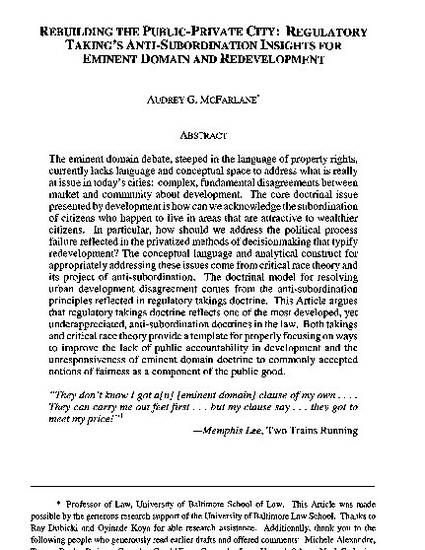
The eminent domain debate, steeped in the language of property rights, currently lacks language and conceptual space to address what is really at issue in today's cities: complex, fundamental disagreements between market and community about Development. The core doctrinal issue presented by development is how can we acknowledge the subordination of citizens who happen to live in areas that are attractive to wealthier citizens. In particular, how should we address the political process failure reflected in the privatized methods of decisionmaking that typify redevelopment? The conceptual language and analytical construct for appropriately addressing these issues come from critical race theory and its project of anti-subordination. The doctrinal model for resolving urban development disagreement comes from the anti-subordination principles reflected in regulatory takings doctrine. This Article argues that regulatory takings doctrine reflects one of the most developed, yet underappreciated, anti-subordination doctrines in the law. Both takings and critical race theory provide a template for properly focusing on ways to improve the lack of public accountability in development and the unresponsiveness of eminent domain doctrine to commonly accepted notions of fairness as a component of the public good.
